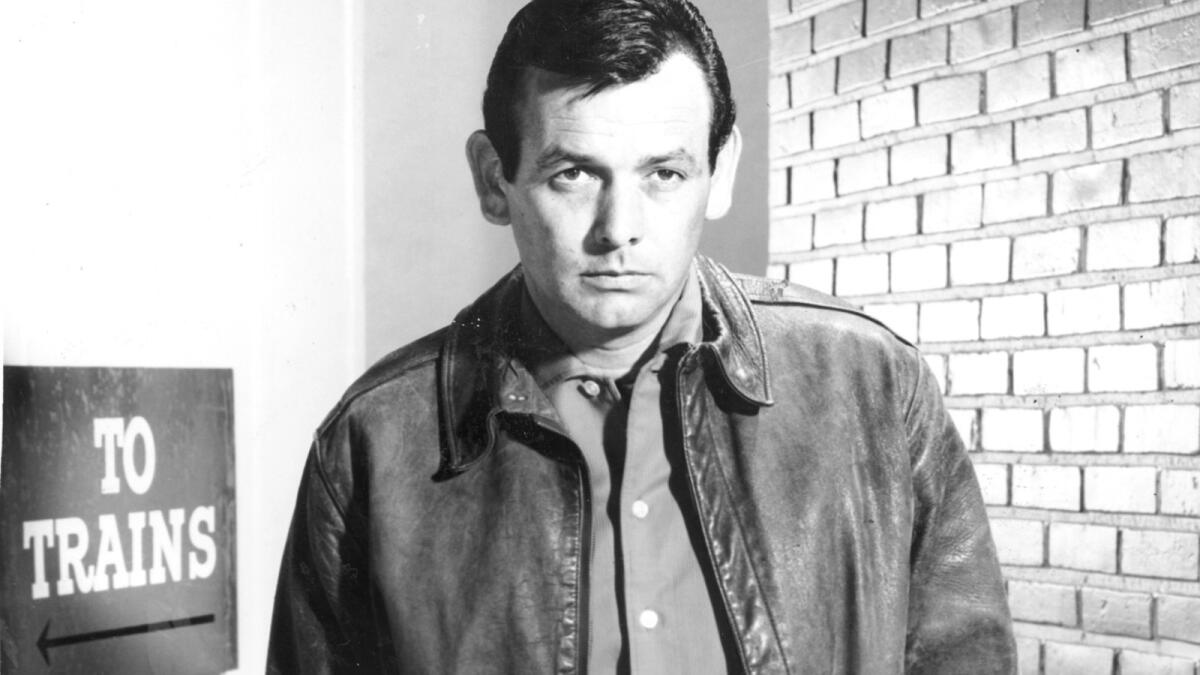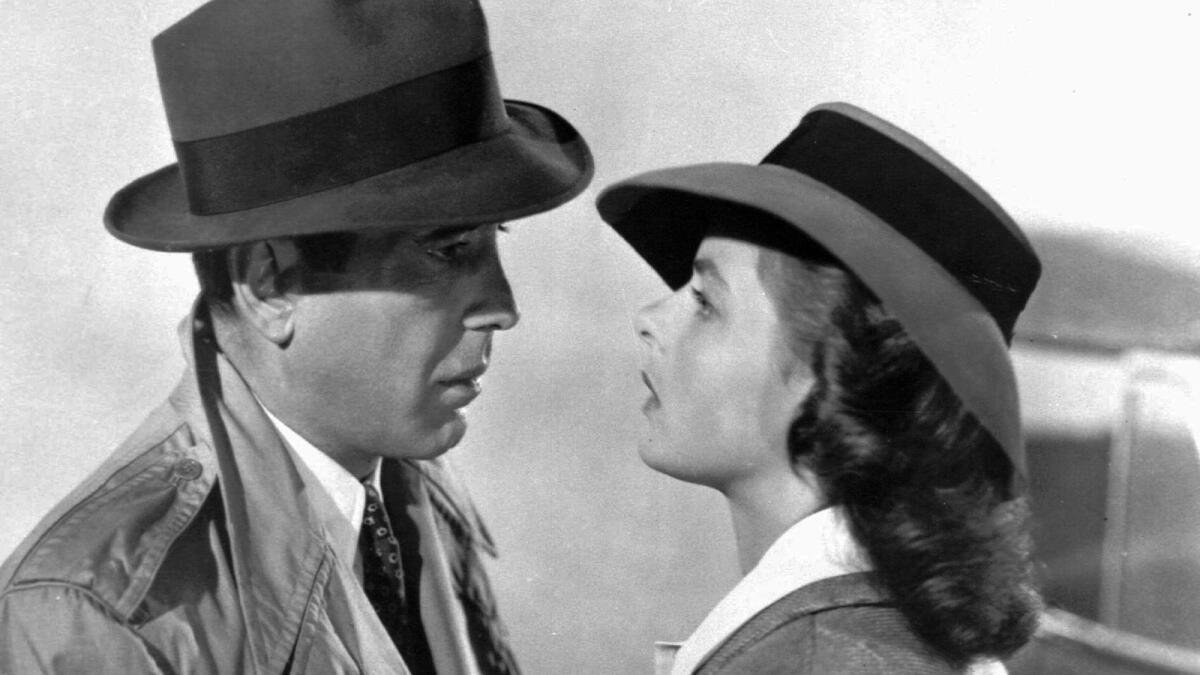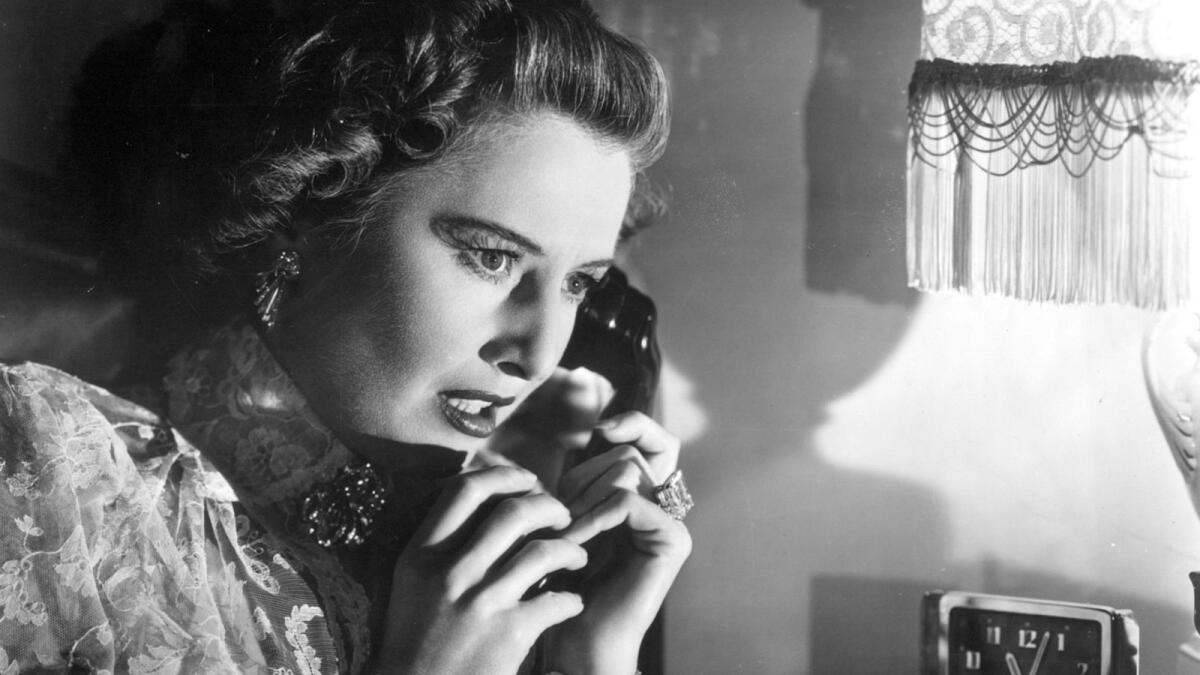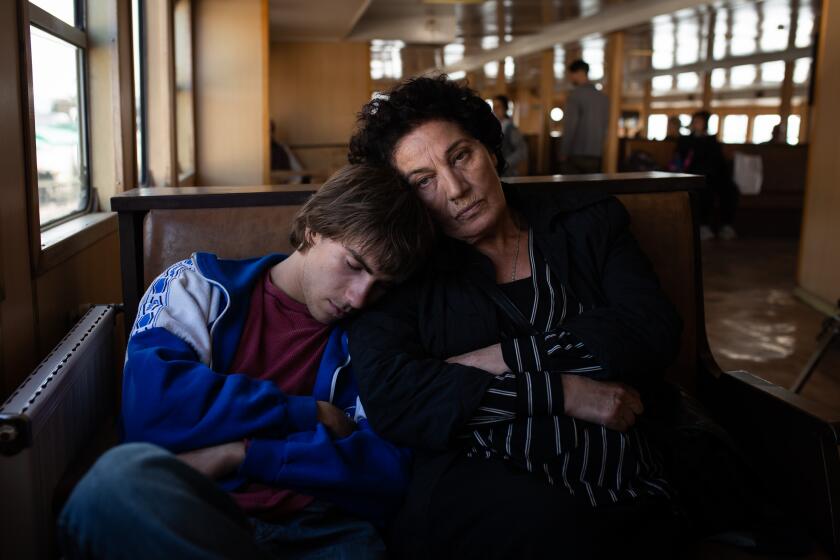Newsletter: Classic Hollywood: Remembering Ingrid Bergman
T
his is Susan King, an entertainment journalist at the Los Angeles Times who is truly, madly, deeply in love with the Golden Age of Hollywood. And every Friday I get the opportunity to share my ardor for Tinseltown’s yesteryear in the Classic Hollywood newsletter. I chat about notable births, deaths, fun events happening around town, the latest in classic films and TV on DVD, as well as movie and TV milestones.
One of the biggest events in TV history took place the evening of Aug. 29, 1967. On that night, 72% of the viewing audience -- then a record for a single episode -- tuned in to see the finale of ABC’s “The Fugitive.” I was one of those who eagerly watched –- I even recorded the audio on my tape recorder -- as Dr. Richard Kimble (David Janssen), wrongly accused of murdering his wife, and Lt. Gerard (Barry Morse) caught up with the one-armed man who was the real murderer. And the show ended with the infamous line, “August 29th, the day the running stopped.”

David Janssen in the mid-1960s series “The Fugitive.”
David Janssen in the mid-1960s series "The Fugitive." (ABC)
The 1993 movie version starring Harrison Ford as Kimble and Tommy Lee Jones, who won an Oscar as Gerard, was a critical and commercial hit.
In 2000, I chatted with the series’ creator, Roy Huggins, on the eve of a short-lived CBS reboot of the series.
Huggins told me that ABC had no idea the finale would go in the record books. “If they had known, we wouldn’t have done it at all,” he said. “We would have made a movie immediately. As it turned out, the right thing happened. It wasn’t made as a movie until much later. That got us a whole new audience.”
Ironically, everybody hated “The Fugitive” when he came up with the idea for the original TV show.
“One vice president of a network later said when I finally did go to a network, 'I hate it. It's a slap in the face of American justice every week.’ Also, I think all they heard really was the rather distasteful part of the series. He was wanted for murder. He's escaped, and now he's running from the police, and he's the good guy. My closest friends would say, 'Roy, you have a great reputation. Don't ruin it. Don't tell that story to the networks.'"
But Huggins knew he had a good concept and so did ABC head Leonard Goldenson.
“I finally found a man who liked it,” Huggins said.
Bergman centennial
Aug. 29 marks the 100th anniversary of the birth of three-time Oscar-winning actress Ingrid Bergman. She also died on that date in 1982. The tall, fresh-faced Bergman came from Sweden to Hollywood in 1939 to star in David O. Selznick’s production of “Intermezzo.” She quickly became one of Hollywood’s best-loved performers, starring opposite Humphrey Bogart in 1942’s Oscar-winning World War II romance “Casablanca” and earning her first Oscar for 1944’s “Gaslight.”

Humphrey Bogart and Ingrid Bergman in the 1943 film “Casablanca.”
Humphrey Bogart and Ingrid Bergman in the 1942 classic film "Casablanca." (Associated Press)
Bergman became persona non grata, though, when she went to Italy to film Roberto Rossellini’s 1950 drama “Stromboli.” The married Bergman fell in love with Rossellini and had their son out of wedlock. She later married Rosselini and stayed in Italy, where the couple made several films. She was welcomed back to Hollywood, winning her second lead actress Oscar for 1956’s “Anastasia.” And Bergman never looked back, earning a third Oscar for supporting actress for 1974’s “Murder on the Orient Express.”
TCM’s "Summer Under the Stars" celebrates her centenary today with several of her films, including “Stromboli"; Ingmar Bergman’s masterful 1978 “Autumn Sonata,” for which Bergman earned her final lead actress Oscar nomination; “Casablanca” and “Gaslight.”
And if you want to catch Bergman’s magic on the big screen, the New Beverly Cinema is screening Alfred Hitchcock’s 1946 romantic thriller “Notorious,” which also stars Cary Grant, this Friday and Saturday. The American Cinematheque kicks off its tribute to Bergman on Sept. 4.
Here is the L.A. Times obituary on Bergman as it appeared in the paper on Aug. 31, 1982.
Movie milestone
Barbara Stanwyck received her fourth and final lead actress Oscar nomination for her performance in the noir thriller “Sorry, Wrong Number,” which opened on Sept. 1, 1948. Directed by Anatole Litvak, “Sorry, Wrong Number” finds Stanwyck as the spoiled bedridden daughter of a wealthy businessman (Ed Begley) who one days overhears two men planning the murder of a woman when her telephone lines are crossed. She soon learns that she is the intended victim.

Barbara Stanwyck in the 1948 movie “Sorry, Wrong Number.”
Barbara Stanwyck in the 1948 movie "Sorry, Wrong Number." (LACMA)
Adapted by Lucille Fletcher from her 1943 radio play, “Sorry, Wrong Number” also stars Burt Lancaster as her husband and Wendell Corey.
Though you’ll certainly want to dial in to the movie version of “Sorry, Wrong Number,” it pales in comparison to Fletcher’s radio play that first aired on the series “Suspense.” Though the film was opened up to include other characters, the taut 30-minute radio thriller is basically a one-woman show with Agnes Moorehead brilliantly playing the woman who discovers that she is about to die. The episode proved so successful that Moorehead would do it seven more times before finally putting down the phone in 1960. The radio broadcast, available on the Internet, is definitely worth checking out after you see the movie.
Sneak peek
In this Sunday’s Classic Hollywood, I preview the 51st edition of the Cinecon Classic Film Festival, which opens Sept. 3 at the Egyptian Theater in Hollywood and continues through Labor Day. The festival features rarities and classics from the Golden Age of Cinema. This year, there will be a seldom-seen feature with the Three Stooges, a restoration of a rare Roscoe “Fatty” Arbuckle feature and a 1923 version of Jack London’s “Call of the Wild,” produced by Hal Roach.
From the Hollywood Star Walk
Notable births this week include Charles Boyer (Aug. 28); Donald O’Connor (Aug. 28); Michael Jackson (Aug. 29); George Montgomery (Aug. 29); Barry Sullivan (Aug. 29); Fred MacMurray (Aug. 30); Shirley Booth (Aug. 30); Raymond Massey (Aug. 30); James Coburn (Aug. 31); Buddy Hackett (Aug. 31); Fredric March (Aug. 31); Yvonne DeCarlo (Sept. 1); Marge Champion (Sept. 2); and Vera Vague (Sept. 2)
For more vintage Hollywood, go to the Classic Hollywood Los Angeles Times Facebook page and follow me on Twitter at @mymackie.
Only good movies
Get the Indie Focus newsletter, Mark Olsen's weekly guide to the world of cinema.
You may occasionally receive promotional content from the Los Angeles Times.








